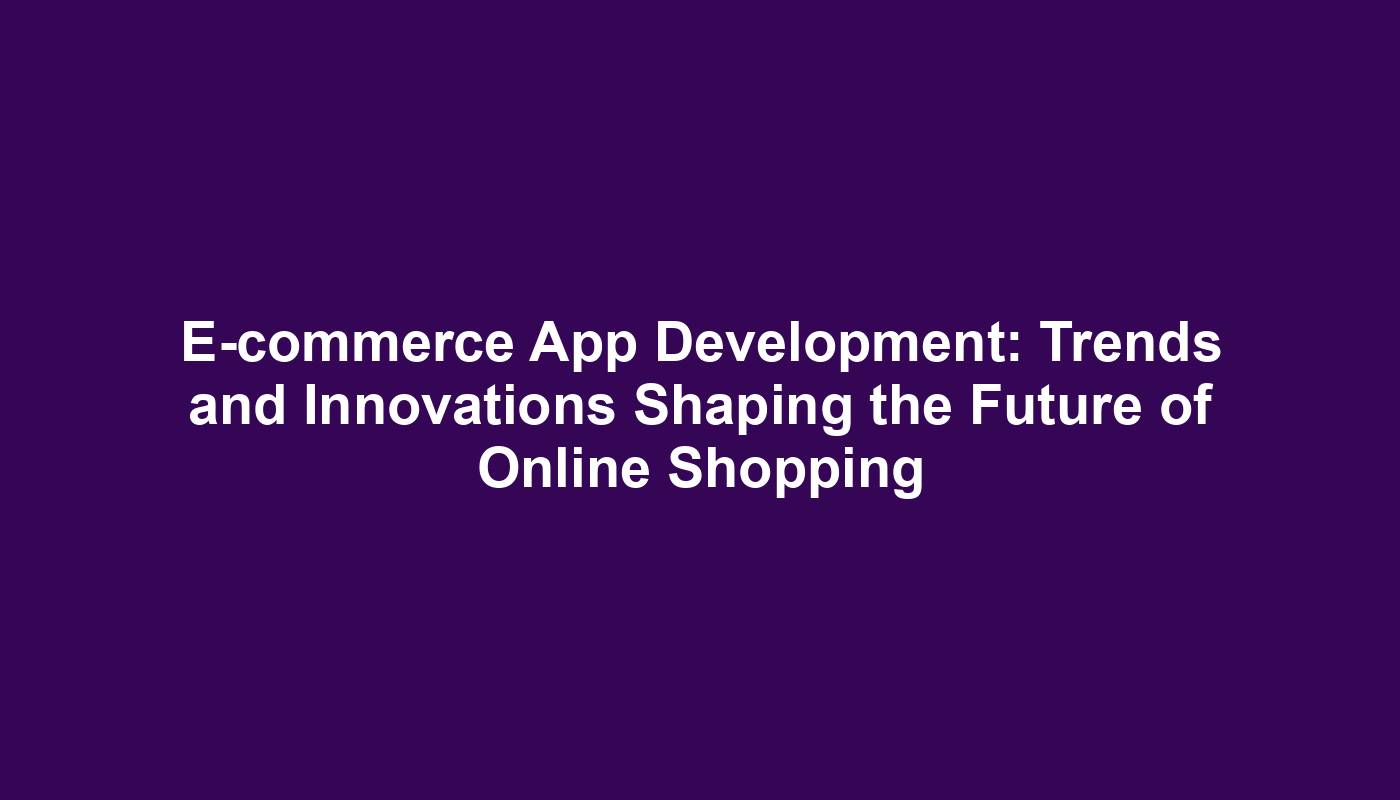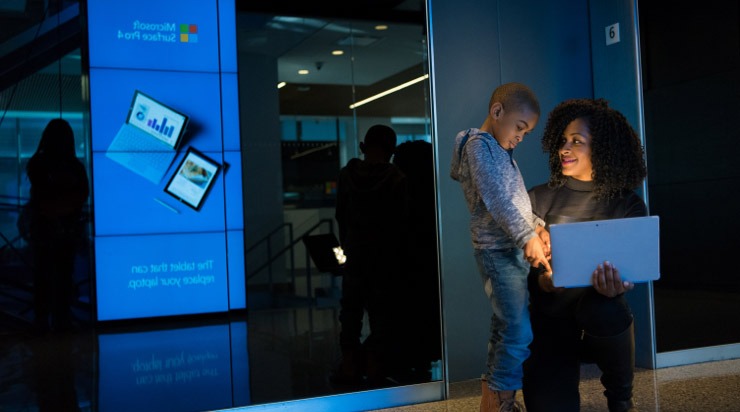Transforming E-Commerce: The Future of App Development
The e-commerce landscape is constantly evolving, driven by technological advancements, changing consumer behavior, and the ever-increasing demand for seamless and personalized shopping experiences. In 2024 and beyond, several key trends and innovations are set to revolutionize e-commerce app development, shaping the future of online shopping.
1. Artificial Intelligence (AI) and Machine Learning (ML):
AI and ML are at the forefront of e-commerce innovation. These technologies are used to enhance personalization, improve customer service, and optimize operations.
- Personalized Product Recommendations: AI algorithms analyze vast amounts of user data to deliver tailored product recommendations, increasing the likelihood of conversions and boosting sales.
- Chatbots and Virtual Assistants: AI-powered chatbots provide instant customer support, answer queries, and guide users through the purchase process, enhancing customer satisfaction and reducing the workload for customer service teams.
- Visual Search: AI-powered visual search allows users to find products by simply uploading an image or taking a photo. This innovative feature streamlines the search process and caters to visually oriented shoppers.
2. Augmented Reality (AR) and Virtual Reality (VR):
AR and VR technologies are transforming the way customers interact with products online.
- Virtual Try-On: AR-powered virtual try-on features enable customers to virtually try on clothes, accessories, or makeup before purchasing, reducing the likelihood of returns and enhancing the shopping experience.
- Product Visualization: AR allows customers to visualize how furniture or other products would look in their homes or offices, aiding in the decision-making process.
- Interactive Product Demonstrations: VR can provide immersive product demonstrations, allowing customers to experience products in a virtual environment before buying them.
3. Voice Commerce:
With the rise of voice assistants like Amazon Alexa and Google Assistant, voice commerce is gaining momentum. E-commerce apps are integrating voice search and voice commands, enabling users to search for products, add items to their cart, and complete purchases using voice commands.
4. Social Commerce:
Social media platforms are increasingly becoming shopping destinations. E-commerce apps are integrating with social media platforms to enable seamless shopping experiences, allowing users to discover, browse, and purchase products directly within their favorite social apps.
5. Omnichannel Experiences:
Customers expect a seamless shopping experience across all channels, whether it’s on a website, mobile app, or in a physical store. E-commerce app developers are focusing on creating omnichannel experiences that integrate online and offline shopping, providing a consistent and convenient experience for customers.
6. Sustainability and Ethical Practices:
Consumers are increasingly conscious of the environmental and social impact of their purchases. E-commerce apps are incorporating features that highlight sustainable products, eco-friendly packaging options, and ethical sourcing practices, catering to the growing demand for responsible consumerism.
7. Hyper-Personalization:
E-commerce apps are going beyond basic personalization to offer hyper-personalized experiences. By leveraging AI, ML, and big data, apps can tailor product recommendations, promotions, and content to each individual user’s preferences, purchase history, and browsing behavior.
8. Livestream Shopping:
Livestream shopping is an emerging trend that combines entertainment with e-commerce. Apps are integrating livestreaming features, allowing brands and influencers to showcase products in real time and interact with potential buyers, creating an engaging and interactive shopping experience.
9. Blockchain Technology:
Blockchain technology offers enhanced security and transparency for e-commerce transactions. By leveraging blockchain, e-commerce apps can create secure and tamper-proof records of transactions, ensuring trust and accountability between buyers and sellers.
10. Mobile-First Design:
With the majority of e-commerce traffic coming from mobile devices, mobile-first design is a must. E-commerce app developers are prioritizing responsive design, intuitive navigation, and fast loading times to optimize the mobile shopping experience.
By embracing these trends and innovations, e-commerce app developers can create cutting-edge applications that cater to the evolving needs and expectations of modern consumers. The future of e-commerce app development is bright, with endless possibilities for innovation and growth.



























